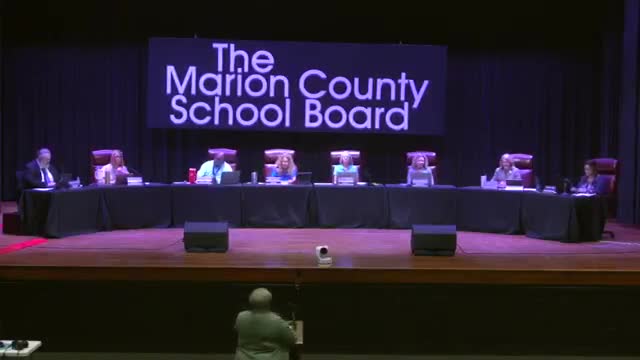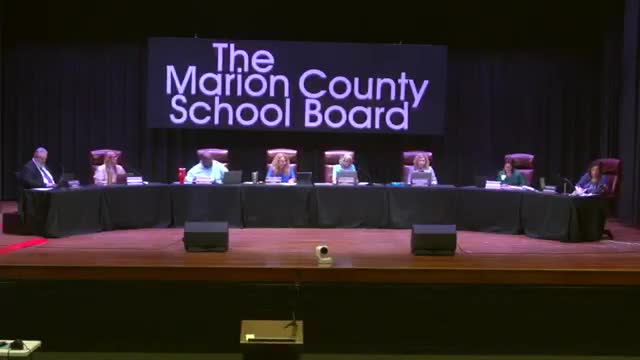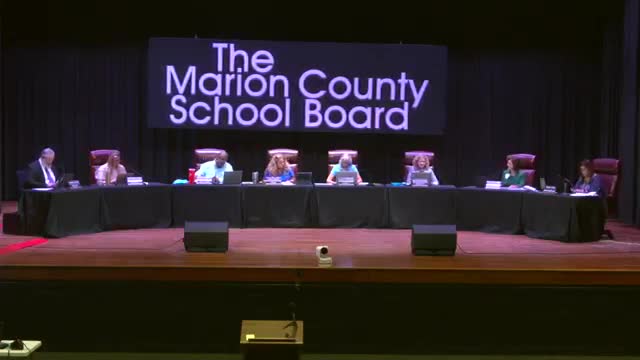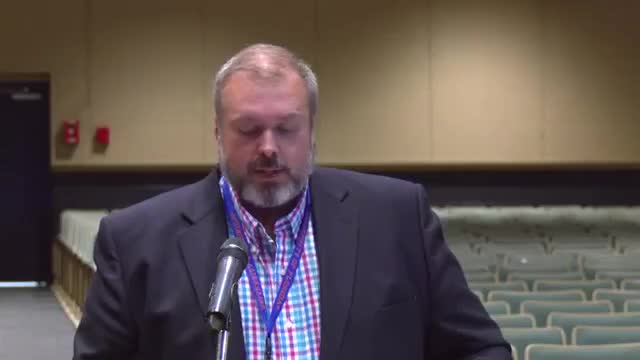Article not found
This article is no longer available. But don't worry—we've gathered other articles that discuss the same topic.

Marion County schools spotlight mentoring programs serving hundreds of students; providers ask for more volunteers and steady funding

Board questions Marion County central office staffing plan after staff say proposed 2025-26 cost rises despite net position cuts

Marion County presents updated mental-health plan under Florida’s Marjory Stoneman Douglas law; proposes more school-based providers

